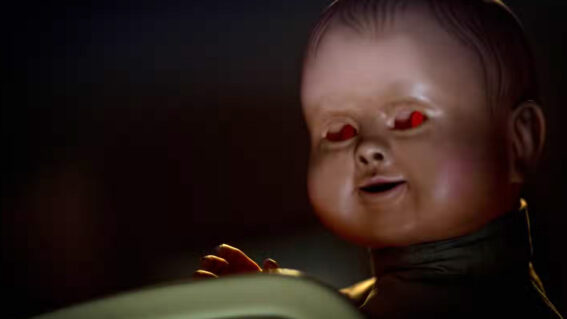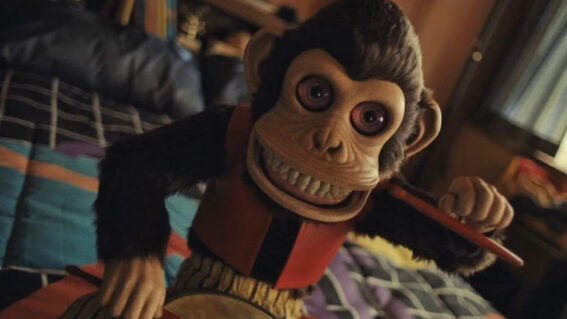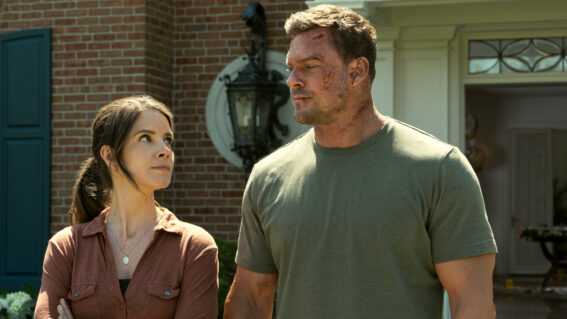Why The Shawshank Redemption continues to move and inspire us
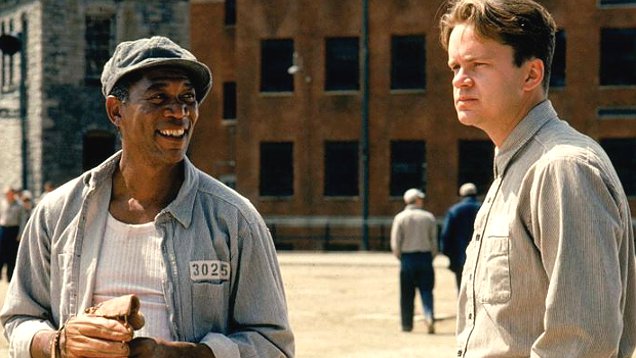
The Shawshank Redemption has been voted the greatest film of all time, in our new poll of Australian moviegoers. Critic Luke Buckmaster returns to this classic film and reflects on why it continues to inspire audiences.
What can one say about The Shawshank Redemption that hasn’t been said before? For starters, writer/director Frank Darabont’s 1994 masterpiece (adapted from a short story by Stephen King) has been wholeheartedly endorsed by Flicks readers, who voted it the greatest film ever made in our new poll, which was drawn from 13,107 votes. To put it in language inspired by Morgan Freeman’s elegant but straight-talking narration: the film about a man who crawled through a river of shit came out superbly clean on the other side.
Every time I return to this film, which I must have watched at least seven or eight times, it sweeps me away with its cinematic artistry and wows me with its humanity. In short: the story of a wrongly convicted banker (Andy Dufresne, played by Tim Robbins) who eventually escapes from the titular prison fills me – fills all of us, I am sure – with feelings. I find myself recalling situations in the film almost as if I was there, sharing this world with the characters.
Journeying back to Shawshank once more in the wake of Flicks’ poll, I asked myself: why does this film touch us so deeply? What is it really about? I came up with several answers to that question, then whittled the list down to the three that resonate the strongest with me. This article is intended for people who have seen the film; the first to cry “spoiler” gets thrown in The Hole for a month.
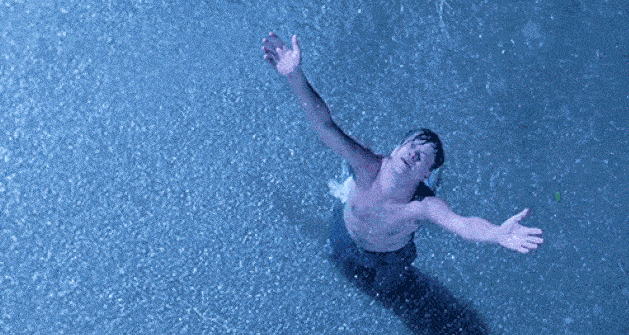
It is about coming to terms with the past
In a melancholic moment towards the end, Andy shares a profound reassessment of his former self. He tells Red (Morgan Freeman) that he did in fact kill his wife, but “I didn’t pull the trigger. I drove her away. And that’s why she died, because of me. The way I am.” He has come to believe that had he been a better husband – more attentive to her needs, more expressive of his feelings – his murdered wife would still be alive. Andy has suffered punishment for a crime he didn’t commit, but instead of being blinded by anger he in effect says ‘I may not guilty of the crime I was put in here for, but I am guilty nevertheless: I should have been a better man.’ There is something truly inspiring about that kind of introspection.
Red, who is guilty of the crime for which he was convicted, also grapples with his former self. At his finale parole hearing he opens up to the assessors about the constant regret he experiences, saying “I look back on the way I was then. A young, stupid kid who committed that terrible crime. I want to talk to him….But I can’t. That kid’s long gone. This old man is all that’s left. I’ve got to live with that.”
It is about hope
The way Darabont considers that word, “hope”, is deeply interesting. The filmmaker doesn’t propose that hope is something you bung on a greeting card and hey presto, life becomes better. Here it is bittersweet and complex. Hardened by many years in jail, Red has come to believe that hope has “got no use on the inside,” because “hope is a dangerous thing. Hope can drive a man insane.” That perspective is understandable from an inmate inside a prison, where one is stripped of basic rights and subservient to the system, with little ability to determine their own destiny.
Red’s warning about the danger of hope resonate when a new inmate, Tommy (Gil Bellows) reveals he has information that could possibly reopen Andy’s case. But Tommy is killed by the evil warden (Bob Gunton) and captain of the guards (Clancy Brown) to silence him. Ultimately, however, we are informed that hope is a great thing; the protagonist would never have escaped from Shawshank without it. The word is mentioned several times in the final monologue, which accompanies vision of Red journeying to meet Andy on a beach in Zihuatanejo. Red says: “I hope I can make it across the border. I hope to see my friend and shake his hand. I hope the pacific is as blue as it has been in my dreams. I hope.”
It is about savouring the moment
The Shawshank Redemption is also about how life is full of precious moments. Our happiness, Darabont appears to be saying, can be determined in part by knowing where to look for these moments, and, when they arrive, deciding to appreciate them. A memorable example occurs when Andy agrees to assist the captain of the guards with financial matters, in return for “three beers a piece for each of my co-workers.” These blokes, taking a break from tarring a roof, drink ice cold beer with the morning sun on their shoulders, feeling for a moment like free men. Darabont cuts to Andy sitting in the shade, with, as Red puts it, “a strange little smile on his face.”
But my favourite example of The Shawshank Redemption as a film about savouring the moment transpires when Andy locks himself inside the warden’s office and broadcasts a vinyl record playing Mozart (the Duettino- Sull’aria from The Marriage of Figaro) to the entire prison yard. He knows the punishment for this will be severe (and it is: two weeks in ‘The Hole’) but judges that the beauty of this moment is worth it. Looking back on this event, Red suggests the opera singers might be “singing about something so beautiful it can’t be expressed in words,” and notes that “for the briefest of moments, every last man at Shawshank felt free.”


